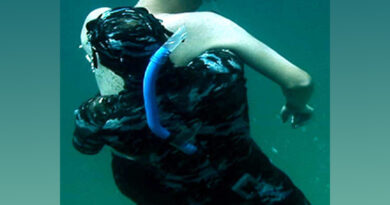The Importance of Learning to Breathe in Freediving: The Key to Underwater Depths

Introduction:
Freediving, or breath-hold diving, is a fascinating sport that requires extraordinary mental and physical discipline. Freedivers immerse their bodies in the depths of the ocean without the use of scuba diving equipment, pushing the limits of human capabilities. While the practice of freediving involves a wide range of skills, the crucial aspect underlying every success is the art of breathing correctly. In this article, we will explore the importance of learning to breathe in freediving and how proper breathing technique can enhance performance and ensure the safety of freedivers.
Breath control as the foundation of freediving:
In freediving, breath control is essential for achieving optimal performance. The ability to hold one’s breath for long periods of time and optimize oxygen intake is what allows freedivers to reach great depths or maintain dives for extended periods. Through consistent practice and learning specific breathing techniques, freedivers can train their bodies to maximize the precious oxygen during dives.
The importance of oxygen in freediving:
Oxygen is the vital fuel for our bodies, and in freediving, it becomes even more precious. Proper breathing allows the freediver to prepare their body by increasing oxygen levels before the dive. This helps reduce the presence of carbon dioxide and delay the onset of breathlessness during apnea. Furthermore, proper oxygen release in the body can help prevent feelings of panic or anxiety that could compromise safety during descent or ascent.
Breathing techniques for freediving:
There are several specific breathing techniques for freediving that freedivers can learn to enhance their performance. One of the most common is diaphragmatic breathing, which involves expanding and contracting the diaphragm to increase respiratory efficiency. This technique allows for greater air volume in the lungs and reduces effort during breathing.
Another technique used is called breath-hold timing, which involves alternating phases of inhalation and exhalation with breath-holding intervals. This technique helps regulate heart rate, reduce metabolism, and increase comfort during prolonged dives.
Safety as a Priority:
In addition to performance, proper breathing in freediving is crucial for ensuring the safety of freedivers. Inadequate breath control can lead to issues such as blackout, pulmonary barotrauma, or nitrogen narcosis. Learning to breathe correctly and listen to one’s body during the dive reduces the risk of accidents and potential harm.
Conclusions:
Freediving is a sport that tests the physical and mental capabilities of freedivers. Learning to breathe correctly is essential for excelling in this discipline and ensuring safety during dives. Through consistent training and learning specific breathing techniques, freedivers can maximize oxygen intake, reduce the risk of accidents, and fully explore the wonders of the underwater world. So, if you dream of exploring the depths beneath the surface, remember that the key to success in freediving lies in the art of breathing.













